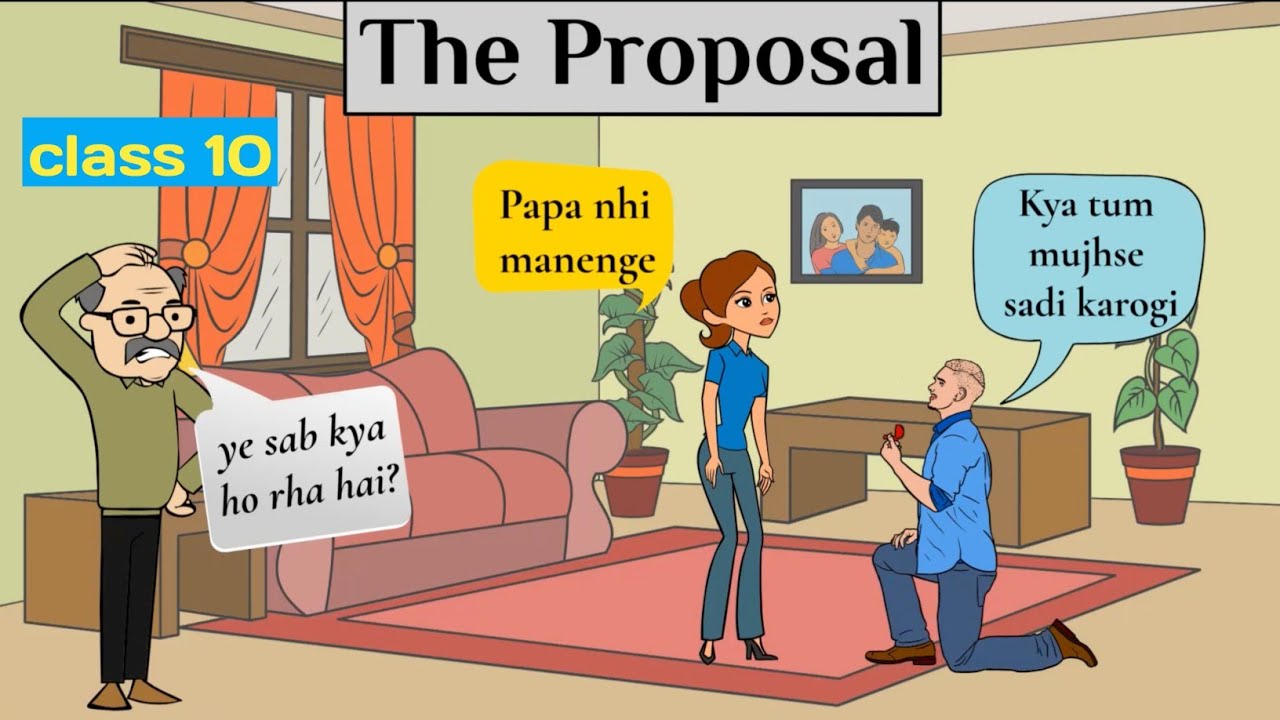Introduction
“The Proposal” by Anton Chekhov is a comedic play that unfolds in one act, exploring themes of courtship, misunderstandings, and social conventions.
Detailed Plot Overview
The story opens with Ivan Vassilevitch Lomov, a nervous and excitable landowner, visiting his neighbor, Stepan Stepanovitch Chubukov, to propose marriage to Chubukov’s daughter, Natalya Stepanovna. Lomov, intending to discuss the merits of his estate and the potential benefits of their union, becomes embroiled in a series of misunderstandings and arguments with Chubukov and Natalya. The discussion quickly devolves into a heated debate over trivial matters, including land boundaries and hunting dogs. Despite their disagreements, the characters ultimately realize the absurdity of their quarrel and the superficial nature of their concerns.
Character Analysis
Ivan Vassilevitch Lomov
Lomov is portrayed as a hypochondriac and somewhat inept suitor, prone to overthinking and easily agitated. His intentions to propose to Natalya are genuine but are often overshadowed by his nervous demeanor and tendency to misunderstand others.
Stepan Stepanovitch Chubukov
Chubukov, Natalya’s father, initially supports Lomov’s proposal but quickly becomes embroiled in arguments with him over trivial matters. He is depicted as pragmatic and protective of his daughter’s interests, though he ultimately realizes the folly of their dispute.
Natalya Stepanovna
Natalya, the object of Lomov’s affections, initially appears agreeable to the proposal but quickly becomes involved in the arguments between Lomov and her father. She is portrayed as headstrong and assertive, willing to challenge societal norms and expectations.
Themes Explored
Miscommunication and Misunderstanding
The play explores how miscommunication and misunderstandings can escalate into unnecessary conflicts. Lomov’s inability to express his feelings clearly leads to confusion and frustration among the characters.
Social Conventions
Chekhov critiques societal conventions and the expectations placed on individuals regarding marriage and property. The characters’ obsession with material concerns underscores the superficiality of their values.
Comedy and Irony
“The Proposal” employs humor and irony to highlight the absurdity of human behavior. The characters’ exaggerated reactions to trivial matters underscore the comedic elements of the play.
Symbolism and Imagery
Chekhov uses symbolism sparingly in “The Proposal,” with the hunting dogs and land disputes symbolizing the triviality of the characters’ arguments and their fixation on material concerns.
Conclusion
In conclusion, “The Proposal” by Anton Chekhov is a comedic exploration of courtship, misunderstandings, and societal conventions. Through its witty dialogue and humorous situations, the play offers a satirical commentary on human relationships and the trivialities that often overshadow genuine emotions.
